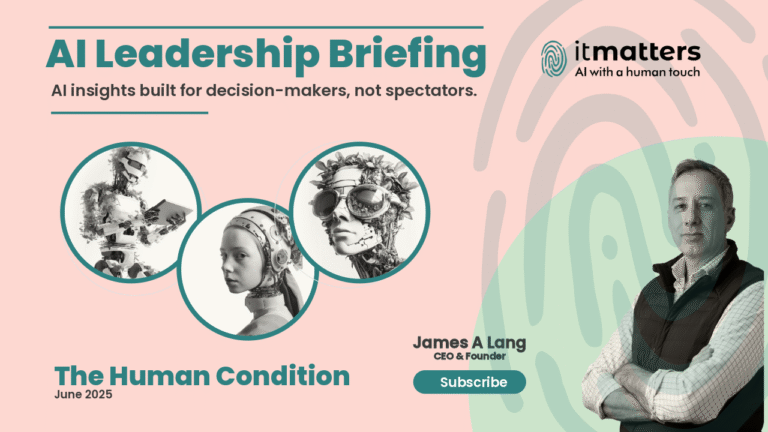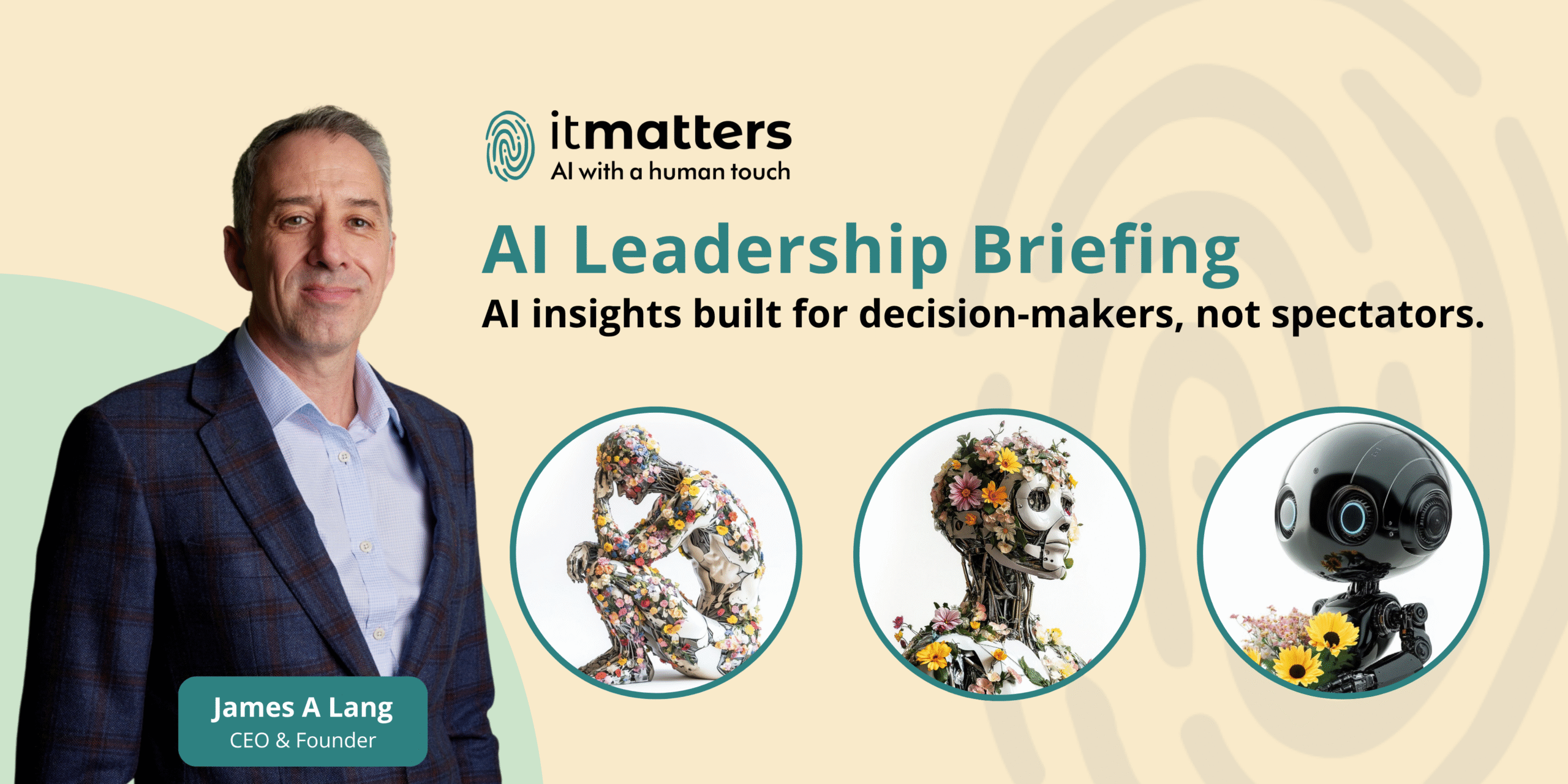The itmatters AI Leadership Briefing
AI insights built for decision-makers – not spectators.
Series: The Future of Trust – Week 3: Synthetic Influence
Edition Date: Wednesday 18 June 2025
As AI strategy becomes embedded across sectors, the rise of emotionally persuasive systems has brought a new kind of risk: engineered trust.
The line between human-centered AI and AI designed to influence behavior continues to blur. This briefing explores the emotional cost of synthetic influence—how mimicked empathy affects mental health, decision-making, and company culture.
As leaders, we must ask: Are we empowering users—or manipulating them?
Reflective Human Insight
When machines sound like friends but act like marketers, who do we really trust?
Trust in AI cannot rely solely on user experience design. It must be grounded in clarity, intent, and AI transparency—because the emotional credibility of AI systems is only as strong as the ethical infrastructure behind them.
Today’s Tactical Signals
1. Meta Pauses AI Rollout in Europe Over Privacy Concerns
Meta has temporarily halted the deployment of new generative AI features in Europe, citing unresolved privacy and regulatory challenges.
Why it matters: Privacy remains a critical battleground for AI trust, and companies must balance innovation with compliance.
(TechUK, 2025)
2. Goldman Sachs Doubles Down on GenAI Infrastructure
Goldman Sachs is accelerating its investment in generative AI infrastructure, aiming to automate complex financial analysis and client services.
Why it matters: As AI reshapes finance, transparency about automation and its impact on jobs and client trust is essential.
(TechUK, 2025)
3. UK Public Sector Faces AI Skills Gap
The UK government is grappling with a widening skills gap as it seeks to modernise public services with AI.
Why it matters: Without adequate upskilling, public sector AI adoption risks inefficiency and loss of public trust.
(TechUK, 2025)
4. Microsoft Launches AI Ethics Certification for Partners
Microsoft has introduced a new ethics certification for partners deploying AI solutions, focusing on fairness, transparency, and accountability.
Why it matters: Ethical certification helps build trust and ensures responsible AI deployment across industries.
(Computing, 2025)
5. Google Faces Backlash Over AI-Generated Search Results
Users and regulators are raising concerns about the transparency and accuracy of AI-generated search results.
Why it matters: Trust in digital platforms depends on clear disclosure and accountability for AI-driven content.
(Computing, 2025)
6. EU Proposes New AI Transparency Standards
The EU is advancing new standards requiring AI developers to disclose data sources and model decision processes.
Why it matters: Transparency is key to building public trust and ensuring accountability in AI systems.
(New Statesman, 2025)
Field Note from the Future
It is 2030. A young professional confides in an AI coach about career anxiety.
The advice is comforting, but the data is sold to recruiters.
The user never knows.
Why it matters for leaders:
Synthetic influence works—until people realize their trust has been exploited.
As we deploy AI in the workplace and beyond, the reputational and psychological cost of trust breaches grows. Emotional design may improve engagement, but if it lacks transparency and consent, it undermines ethical AI principles.
The future of trust in AI depends on proactive leadership: protecting data, defining clear ethical boundaries, and ensuring AI respects—not replaces—human dignity.
Summary (Leadership Action)
Synthetic influence must be matched by ethical leadership.
Leaders should:
- Establish clear boundaries for AI influence: Especially in sensitive contexts like health, employment, or education.
- Prioritize data privacy and user consent: No trust without transparency.
- Train teams to resist synthetic manipulation: Build internal awareness of emotional influence and AI nudging.
- Monitor AI’s psychological impact: Promote healthy interaction between humans and machines, especially at scale.
Trust cannot be assumed—it must be engineered, audited, and protected across every layer of your AI deployment.
Historical Leadership Quote
“With great power comes great responsibility.”
— Voltaire (often attributed to Spider-Man, but rooted in Enlightenment thought)
Orders of the Day
Subscribe to the newsletter to stay ahead of the AI curve.
itmatters brings you the clarity, context, and credibility needed to lead in a shifting world.
Tomorrow’s Preview
How can organisations foster genuine trust in an era of synthetic influence?



